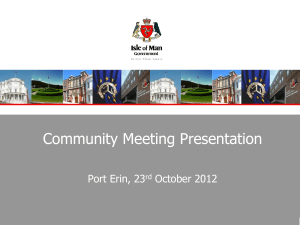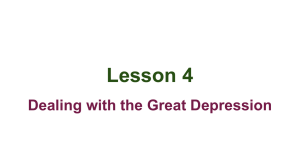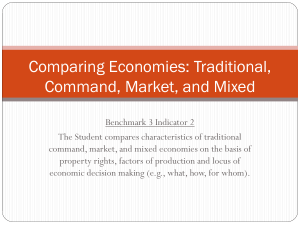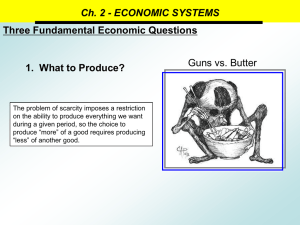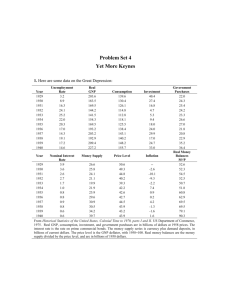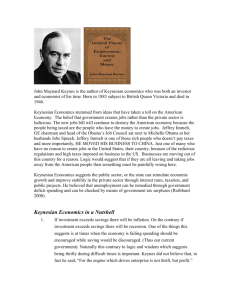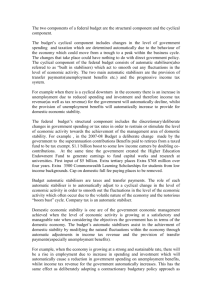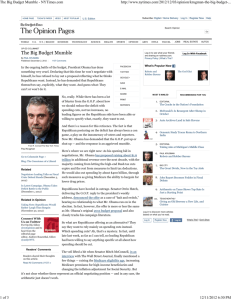LECTURE: PERFORMANCE MANAGEMENT
advertisement
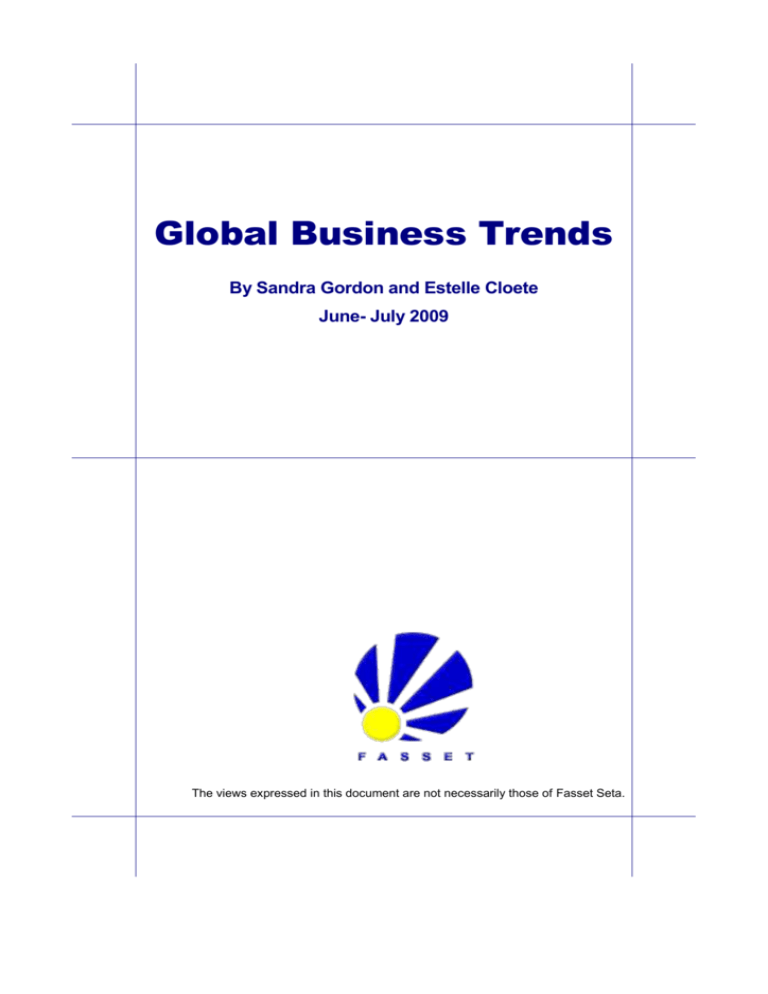
Global Business Trends By Sandra Gordon and Estelle Cloete June- July 2009 The views expressed in this document are not necessarily those of Fasset Seta. The Great Recession The Crisis unfolds: Consumer spending in retreat - households worldwide are in a state of shock, as their assets – including equities, houses, commodities and real estate – continue to fall in value Wealth illusion shattered – no savings, high debt levels and assets (share portfolios) have been devalued Collapse in world trade due to export-driven Asian economies having no markets in the west due to western economies being under pressure from the burst housing bubble and debt-driven consumption binge Unemployment and social unrest – most urgent threat facing the US even more than terrorism Global growth will come to a “virtual halt” this year (IMF) America’s bail-out package does not seem to be providing the necessary impetus to the economy China not able to become the alternative world leading economy yet Political pressure for protectionist trade policies Commodity prices to remain subdued What Prospects of Recovery? 1. Stagnation (60%): The Obama administration continues to follow the script of Japan’s bungled banking crisis. As a result, the restructuring of the US economy and indeed to global economy is slow and painful and world growth remains at or below a modest 3% throughout the forecast period. 2. Gradual rebound (30%): The Obama administration regains the initiative and quickly resolves the issues hindering a recovery in the US banking sector. While a recovery emerges both in the US and globally, the aftermath of the recent excessive require a period of repayment of debt, restructuring of industries and rebuilding of savings – capping global GDP growth around the 3%-4% for the next three years. Thereafter the worldwide recovery strengthens. 3. Global depression (10%): The Obama administration fails to resolve the US banking crisis while the European banking sector slumps into crisis. Protectionism, rising unemployment and social unrest cause the global economy to spiral into depression. 4. Rapid recovery, return to business as usual (0%): The unsustainable nature of the boom during the past decade has now been exposed. A recovery will eventually materialize, but the imbalances accumulated during the past decade need to be corrected – making a resumption of “business as usual” all but impossible. Global Business Trends 2009 1 A Brave New World – new growth sectors Greater role for government – stimulus packages, nationalisation of banks and bailouts to certain industries, more regulation in the financial services sector (here already) Emphasis on education as a boost for economies Renewable energy projects Infrastructure projects Return to public sector employment Financial services no longer sexy with the huge salary differentials of the past era Implications for SA: The crucial factor determining South Africa’s economic prospects during the next five years is the speed with which the current global financial and economic crisis is ultimately resolved It will require an economic recovery in America – the epicentre of the current crisis – to bring it to an end. Exports to remain subdued – commodities, especially mining. Biggest trading partner – countries in the EU are facing a deteriorating economic outlook Pressure from trade unions to increase protectionist trade practices, e.g. clamp down on cheap imports Continued restraint in consumer spending at all income levels Unemployment (even in finance and construction) Increase in social instability – service delivery protests, industrial action - due to increased expectations from a Zuma government not being met Lessons Learnt Return to savings and an end of conspicuous consumption The new normal - not affluence anymore but living within your means The future of capitalism – growth vs. development. Anglo-Saxon economies cannot grow by borrowing and spending but instead by producing and spending The Green New Deal – a need for a more sustainable lifestyle. More research and technology to focus on renewable energy. Increased consciousness of our environmental impact Global Business Trends 2009 2

